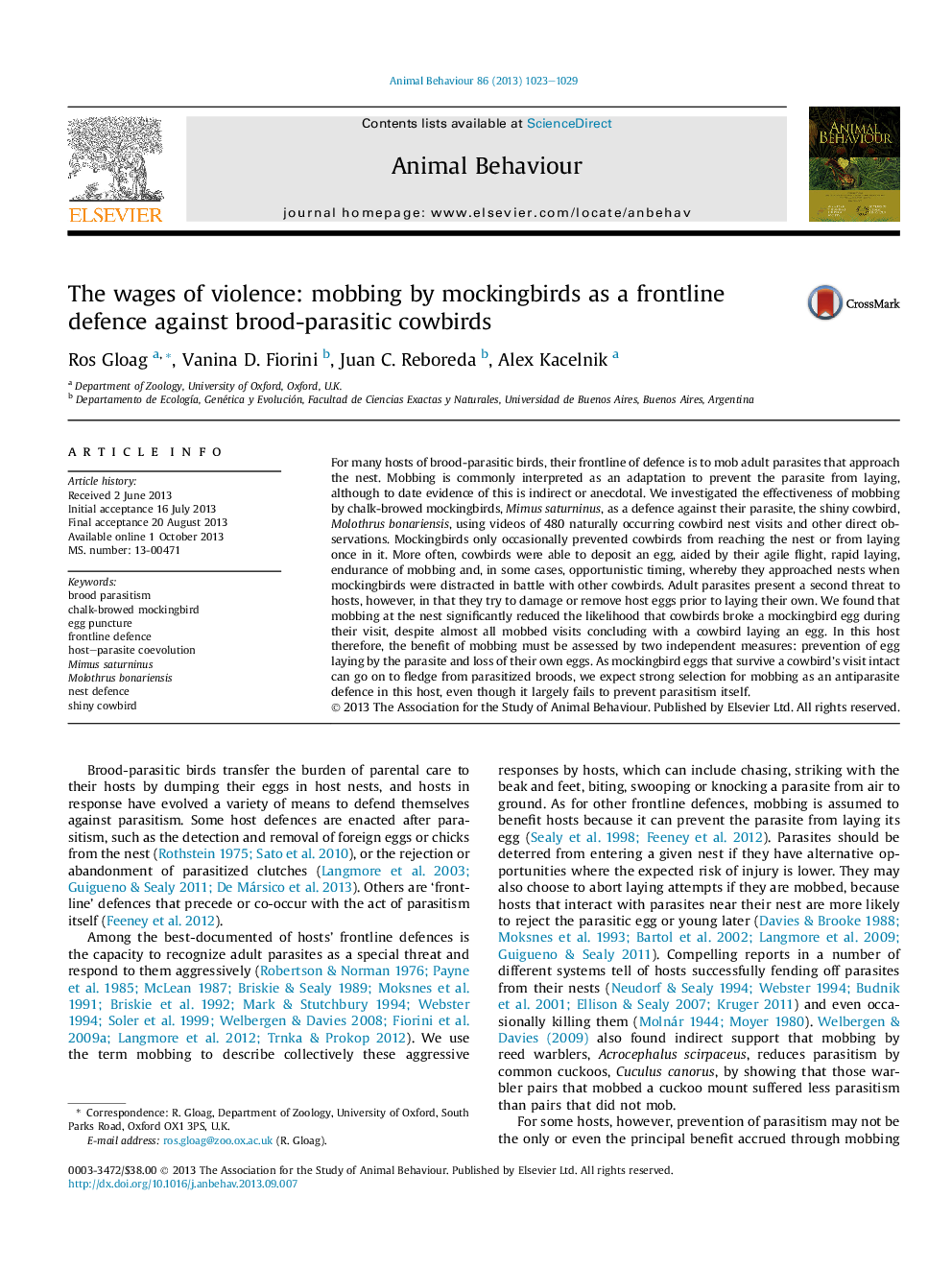| کد مقاله | کد نشریه | سال انتشار | مقاله انگلیسی | نسخه تمام متن |
|---|---|---|---|---|
| 2416490 | 1104275 | 2013 | 7 صفحه PDF | دانلود رایگان |

• 480 direct observations made of chalk-browed mockingbirds mobbing shiny cowbirds.
• Cowbirds laid rapidly and sometimes ‘tailed’ other cowbirds to mockingbird nests.
• Mobbing in and out of the nest rarely prevented cowbirds laying eggs.
• Mobbing in the nest did reduce the risk that cowbirds broke mockingbird eggs.
• Frontline defences that do not prevent parasitism can still increase host fitness.
For many hosts of brood-parasitic birds, their frontline of defence is to mob adult parasites that approach the nest. Mobbing is commonly interpreted as an adaptation to prevent the parasite from laying, although to date evidence of this is indirect or anecdotal. We investigated the effectiveness of mobbing by chalk-browed mockingbirds, Mimus saturninus, as a defence against their parasite, the shiny cowbird, Molothrus bonariensis, using videos of 480 naturally occurring cowbird nest visits and other direct observations. Mockingbirds only occasionally prevented cowbirds from reaching the nest or from laying once in it. More often, cowbirds were able to deposit an egg, aided by their agile flight, rapid laying, endurance of mobbing and, in some cases, opportunistic timing, whereby they approached nests when mockingbirds were distracted in battle with other cowbirds. Adult parasites present a second threat to hosts, however, in that they try to damage or remove host eggs prior to laying their own. We found that mobbing at the nest significantly reduced the likelihood that cowbirds broke a mockingbird egg during their visit, despite almost all mobbed visits concluding with a cowbird laying an egg. In this host therefore, the benefit of mobbing must be assessed by two independent measures: prevention of egg laying by the parasite and loss of their own eggs. As mockingbird eggs that survive a cowbird's visit intact can go on to fledge from parasitized broods, we expect strong selection for mobbing as an antiparasite defence in this host, even though it largely fails to prevent parasitism itself.
Journal: Animal Behaviour - Volume 86, Issue 5, November 2013, Pages 1023–1029